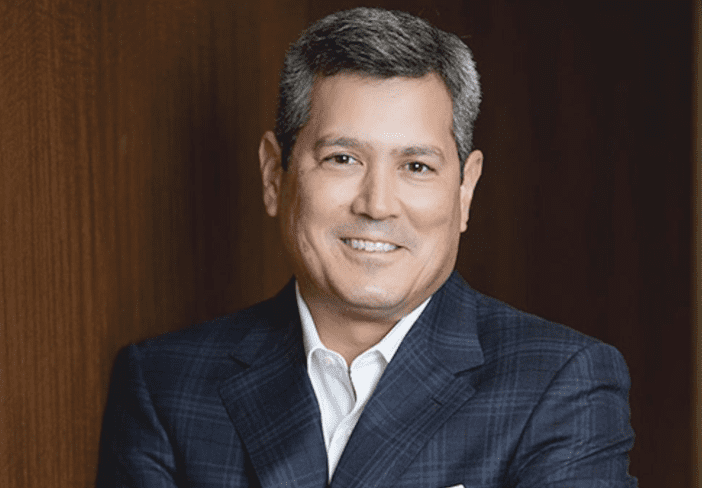VCU 'probably the most impactful event in the evolution of my career'
Michael C. Zucker, FACHE (MHA ‘91), is the CEO and Co-founder of FetchMD, a San Antonio-based company providing on-demand telehealth care. When the pandemic altered FetchMD’s previous business model, Zucker and team made a quick change in how the company delivered care to customers.
 FetchMD’s ability to make a nimble adjustment led to massive growth over the last year and a half. Embracing technology has been key to FetchMD’s development, and Zucker predicts the future of patient care will hinge on utilizing technology to the advantage of administrators and clinicians alike.
FetchMD’s ability to make a nimble adjustment led to massive growth over the last year and a half. Embracing technology has been key to FetchMD’s development, and Zucker predicts the future of patient care will hinge on utilizing technology to the advantage of administrators and clinicians alike.
What was the evolution of FetchMD?
FetchMD started about six and a half years ago, and was originally called Ranger Health. We were working with large self-insured employers to negotiate bundled payments for high-acuity, inpatient procedures. Within the regional market, we evolved and continued working with our same clients: mid-to-large sized companies and their employees.
We started providing on-demand urgent care to the home or office through our mobile app much like Uber or Instacart. We engaged with independent, advanced practice nurse practitioners and physician assistants who were available on their days off. They went out and delivered basic urgent care for our clients. It was essentially bringing back the old-fashioned house call. It really filled that gap between trying to get in to see your primary care physician and having to go to an urgent care center to get treatment for something basic like an ear infection. We were able to deliver fast, affordable and convenient care, directly to the consumer. That business took off and thrived.
Then the pandemic began, and we stopped doing house calls and quickly pivoted to telehealth. And because of the quick pivot, we were able to actually grow our business over the last year and a half and evolve into FetchMD. Although telehealth has been around for more than a decade, even offered as a benefit in most people’s health plan, it wasn’t until the pandemic that it really started being utilized. I think patients and providers have both realized that it’s inexpensive, efficient, and so convenient. But along with the growth and commoditization of teleheath comes the question of pricing the service, which can still pose a hurdle to administrators.
How did your time in the MHA program at VCU influence your career path?
My experience at VCU is probably the most impactful event in the evolution of my career. It really gave me the foundation upon which to launch into healthcare administration. I went the traditional route and started with HCA and spent almost a decade with them, and it was a great experience.
The Health Administration program at VCU very much prepared me for the practical aspects of leadership and management. But it also really taught me how to think more broadly and more acutely at problem solving. After my time at HCA, I left the corporate healthcare world and joined an early stage company that started my interest in the non-traditional healthcare models. That ultimately led to me launching this company some 25 years after I graduated.
The faculty at VCU are second to none, every one of the professors is just the best at what they do. They challenged us and prepared us for the real world. One of the hallmarks of VCU is that it's not a program built around health policy, but it's about real world preparation for future healthcare leaders.
What is the Health Administrators role in helping clinicians to do what they do best: provide quality patient care?
We have got to figure out how to deploy technology to our advantage. As leaders of healthcare organizations, we need to take an active role in transforming the process for documenting cases and allow time for physicians and nurses to do what they do best, which is caring for patients. The electronic medical record was supposed to make everybody's lives easier and more efficient, but it has a steep learning curve and can often become more of a burden than an advantage.
We need to thoroughly document patient care to ensure quality care, while also providing support for reimbursement. But there has to be a more efficient way of doing so. We want our care providers to be at the bedside, not spending inordinate amounts of time at the keyboard.
How have you seen the field of health administration evolve over the last two years?
It’s obviously evolved quite a bit in the last 30 years since I was at VCU. Today, we're seeing a lot more healthcare focused on value-based care, Medicare Advantage, etc. The whole move from fee-for-service to value-based care is transforming the entire healthcare industry. It was a long time coming, but it’s here now. I think we will continue to see growth in consumerism in healthcare, because the patient now has more information at their fingertips to be able to measure quality and value in health care. I know the department of Health Administration at VCU is very much preparing their students for this new world of healthcare delivery and the types of leaders that it's going to require.